- Home
- Douglas Clegg
Lights Out
Lights Out Read online
Praise for Douglas Clegg’s Fiction
“Clegg’s stories can chill the spine so effectively that the reader should keep paramedics on standby.”
—Dean Koontz, New York Times bestselling author.
“Douglas Clegg has become the new star in horror fiction.”
—Peter Straub, New York Times bestselling author of Ghost Story and, with Stephen King, The Talisman
“Douglas Clegg is the best horror novelist of the post-Stephen King generation.”
— Bentley Little, USA Today bestselling author of The Haunted.
“Clegg gets high marks on the terror scale…”
—The Daily News (New York)
LIGHTS OUT
Collected Stories
Douglas Clegg
ALKEMARA PRESS
Get book updates, exclusive offers, news of contests & special treats for readers—become a V.I.P. member of Douglas Clegg’s long-running free newsletter.
Click here to sign up.
Click here to explore more fiction by Douglas Clegg.
Table of Contents
Foreword
Funerary Rites
White Chapel
The Stain
The American
Belinda in the Pool
The Skin of the World
O, Rare and Most Exquisite
The Little Mermaid
A Madness of Starlings
Subway Turnstile
Where Flies Are Born
Underworld
The Rendering Man
The Fruit of Her Womb
Becoming Men
People Who Love Life
Fries With That?
The Machinery of Night
The Wolf
The Wicked
265 and Heaven
The Night Before Alec Got Married
Ice Palace
Why My Doll Is Evil
The Five
The Dark Game
Only Connect
The Ripening Sweetness of Late Afternoon
Chosen
Damned If You Do
The Hurting Season
I am Infinite, I Contain Multitudes
Contact Douglas Clegg
Books by Douglas Clegg
About the Author
Copyright
Foreword
1
The first time I heard the term “lights out,” was in summer camp. An entire world went dark at once. The environment changed. Rules fell apart.
The others in the camp who had been well-behaved might suddenly run amok in the dark. You could get in trouble. You could sneak out. The unlit hours were filled with adventure. No one was around to stop you.
Terrible things could happen.
Wonderful things could happen.
Coincidentally, it was also the time that I discovered a larger world of dark fiction than I had known existed.
This was a basketball camp. We slept in college dormitories. We played on the courts of Davidson College in North Carolina. I learned every dirty joke and cuss word I’d missed out on during my first 12 years of life — and most of them came by way of the coaches. The other kids were all a great group. Some of them had been playing basketball since the age of four, training to become star athletes once they got to high school and college. Others — like me — were there because we just loved playing basketball.
I loved and hated that camp in equal measure at the time; looking back, I wouldn’t have traded those weeks for the world. What an experience.
The workouts were grueling. There was very little in the way of a break during the long day. You arose sometime after 6, showered, ate a quick breakfast — and then you were on the court doing dozens of physical training and coordination exercises until lunch. After lunch, there was usually a long practice game, then dinner, followed by strategy films of other games.
And then, lights out.
After lights out, you could sneak away if you weren’t utterly exhausted — or, if you happened to have a paperback, you might flick on a flashlight under the covers and start reading.
At this camp, in the middle of the day during lunch hour, you’d take a few minutes to go drop off — or pick up — the previous day’s gym clothes at the laundry.
The laundry service seemed a huge luxury. You’d drop off your duffel bag full of smelly socks and shorts and pick them up later, all bright and clean.
That day, I was in a hurry. I’d forgotten to drop my laundry off the day before, and so I skipped lunch to drag two days’ worth of gym clothes over to the receivables window at the front of the laundry room.
The woman who worked at the counter was absorbed in a book at just that moment; she probably didn’t expect boys to show up for another half hour. I felt bad interrupting her, but I needed to get that laundry done. She looked up, smiled, listened to my tale of woe, and said it could possibly be done but to make sure I had gym clothes for the next practice.
I asked her about the book in her hand. She told a bit about the story in it, which had to do with murder and a hitchhiker.
“You like dark stories?” this magnificent laundress asked me.
I nodded.
Did I like dark stories. I’d been raised on Poe and Hawthorne, among other writers of classic short fiction.
This angel of basketball camp offered me an entire suitcase full of paperback anthologies of dark mystery stories and horror — including six H.P. Lovecraft collections with skulls and weird stuff on the covers. She promised that when I finished the one suitcase, I was to empty it and keep the books I wanted but return the suitcase.
And then, she said, she’d fill it again.
Reader, I went to town.
After lunch, I’d race back to my room and open this magical suitcase to find a new anthology beneath the pile of others I’d already read through. If I got caught in a story and couldn’t finish before afternoon practice began, I’d make up the rest of the story in my head as I dribbled and took shots. I was more inside those stories than on the court. When playing in the weekly big game, I imagined these tales projected on the movie theater of my mind.
Late at night, I’d turn on my flashlight and get right back into it, no matter how exhausting the workout had been that day.
The smell of those paperbacks! Musty or fresh, didn’t matter to me. The feel of the pages, which turned themselves as I swam the currents of those stories!
There were these great Mystery Writers of America anthologies of crime and suspense stories (Tales for a Rainy Night being such a standout I remember every story in it even to this day, proving mystery stories can be scary as hell). Tale after tale that caught me in its trap, its net, its undertow — making me forget the world around me and the passing of time. There is no time in story; there is only “what happens next.” I discovered tales from M.R. James and Arthur Machen, too, and then there was Ray Bradbury’s The October Country and The Illustrated Man, each turning my world inside out with its dusky beauty.
Finally, I walked with H.P. Lovecraft along his mountains of madness, shivered beneath the shadows over Innsmouth, visited Dunwich and Arkham, and imagined the strange model who sat for an artist named Pickman.
I devoured these paperbacks in a frenzy of late nights and stolen hours. I could not get enough of them.
I fell head over heels in love with the dark tale.
And I felt I’d been given the key to the most amazing world, where pulp met literary, imagination soared against a backdrop of twilight, where anything could happen, where night creatures roamed, and where human nature met its mythological match.
The fiction of “lights out.”
2
Now, as an adult, there is nothing so ordinary as the moment when the lights go out. These things h
appen. Sometimes, you forgot to pay the electric bill, or a storm comes through and your entire neighborhood has gone dark. Perhaps you’re in bed and you turn out the lamp but are unable to sleep as you face the dark.
But there are times when more dangerous things occur and you’re not safe in your home or in a place surrounded by familiar faces. You might be in the woods; as you leave the main path, branches overhead seem to converge and block out the sun — and you find yourself in the dark even at midday. Or you explore a cave and the flashlight dies in your hand. Or you’re on an isolated road in the middle of nowhere after a moonless midnight, out of gas, and your battery dies just as the wind picks up.
I could play out other scenarios of fears we all have, night visions, strange dreams in the pitch black, the illusions we create, the mind movies we unleash.
This is the realm where nightmare logic rules, where wondrous and unearthly creatures can emerge — or where the worst human impulse shows itself as the mask slips down and we bear witness to the genuine face of the dark.
On the other hand, there’s nothing like your imagination when the world has vanished and you’re living in a dream. That’s the moment when magic carpets soar and a secret wish reveals itself and the thing you’re most afraid of becomes your own reflection in the mirror of night.
3
Come along with me. I’ve brought together three previously published volumes of my short fiction — including the Bram Stoker Award and International Horror Guild Award-winning collection The Nightmare Chronicles, with Night Asylum and the collection Wild Things. To these, I’ve added the previously uncollected novelette (first published in Dark Discoveries #27 in its April 2014 issue) Funerary Rites.
Included are the novelettes The Dark Game, White Chapel and I Am Infinite, I Contain Multitudes as well as stories of quiet dread, dark fable, outright horror, mythological madness, and chilling suspense. This enormous collection represents the majority of my past short fiction (excluding all works of novella-length or more) from sometime around the year 1990 and into early 2014. I’ll continue to write stories, novelettes, novellas and novels as long as I have breath (and mind).
I hope you’ll continue to read them.
— Douglas Clegg
July 20, 2014
Funerary Rites
1. What Ruby Said
When the foreigners first came, they rented the old Dunwoody place with its rundown barn at the back.
“Coppery people,” is how Ruby began her description of them. “The women wear these yellow and blue robes draped like this,” she drew her hand over and across her shoulder, “and they set everything in straw baskets gently, like putting babies down to sleep. You should have seen the look I got from Jean Marie when I helped them. My goodness, you’d have thought I was passing nuclear secrets to the Rosenbergs.”
We walked home from her father’s store where my wife took afternoon shift three days a week while our son spent time with his aunt. It was one of those warm, unhurried summer evenings from which we stole ten trouble-free minutes together, headaches calmed, hand in hand like kids.
“They say much?”
She shook her head. “Just pointed at things. Held out cash for me to pick and choose from. They’ve got a smell.” Realizing how ugly this sounded, she added, “not unpleasant at all. But unlike anything I’ve smelled before. Wonder what it is?”
Ruby, whose family went back two hundred years in our village, had never seen three women who looked so different from anyone else in her world.
My wife had grown up within the village terrarium. In some ways, it’s why I loved her, particularly after the war, when everything else changed so much. Ruby had retreated in some respects and become more of a small town, old fashioned girl than she’d been when we met.
This is not to say she was ignorant or backward — or even shy. She got her education — a good one — having studied history and art in a local college of pastoral setting, with an ambition of moving to New York City or even Paris and working in a little gallery or maybe the Metropolitan Museum of Art, she said within the first twenty minutes of our inaugural conversation, surrounded by a dome of chatter and music.
Who could not fall in love with her?
What a momentous night that was for me:
Imagine if that busload of college girls had not arrived from the state’s outer reaches to crash the October tri-collegiate party at Oyster River where dancing went all night and lights were strung like the Milky Way from beam to beam in a barn-sized boathouse.
There, I — morose and undone by my first full month away from home — approached this most compelling girl who stood alone at the edge of everything. She, of soft dark hair and narrow brown eyes hidden beneath the kind of glasses you’d draw off just before you’d kiss her. She was dressed in what looked like her grandmother’s cocktail dress with the pelt of a long blue cardigan draped across one shoulder, a magnificent misfit, clutching a bottle of Coca-Cola in one hand as if ready to crack heads with it, a permanently unlit cigarette in the other, not giving a damn about dancing or drinking or whether she looked foolish or not.
“Look around, the world’s coming apart at the seams but in here it’s all fun and games — and I’d avoid the punch if I were you,” Ruby said to me. “I had to be dragged here. What’s your excuse?”
“I think I came here to meet you,” I said.
Ruby probably would have left with me after college — and headed off for New York, Paris, or just plain old Boston — had not history both large and small cut short the path.
War intervened the following winter, during which I mainly saw the inside of safe, dusty corridors packed with bespectacled and exacting old men nearly as boring as the work. Flat-footed, four-eyed, color-blind, with a slight hand tremor from birth and an aptitude for numbers and memorization, I was deemed fit more for paperwork than for fighting; I cataloged the missing and the dead.
It became my unenviable job to connect names with numbers and home addresses so that — eventually — a doorbell would be rung and some family stateside given the bad news.
I ran across the names of college friends who had fallen, neighborhood sons who’d been lost in the Pacific, and those possibly dead in the rubble of Europe. I grew to hate the larger world and dream of the kind of village where nobody knew much about what went on out there.
During the first year or two of the war, Ruby and I wrote constantly to each other. The news came from the Pacific that her beloved brother died in combat. In fact, I saw his name on the lists and felt a jab in my heart when I thought of how Ruby would take the news.
Later, when her mother grew sick the letters trickled and then stopped entirely.
She had become moored to her home by that point. Her father needed her, she wrote in her last letter, her sisters couldn’t keep the store running, it looked grim for her mother, and Ruby couldn’t shake the thought of her older brother dying like that.
And then, the silence.
As soon as I could, I returned, terrified I’d lost my girl to someone else. After I’d located her and spent days in her company, I proposed marriage, imposed pregnancy, and then there was no getting her to up-and-go anywhere else.
For me to be with Ruby, I had to give up the outside world.
At the time, it was how I wanted it. Her hometown remained locked in a dream of what a New England village had always been. The milk was fresh, the air clean, the trees thick with leaf, the streams ice-cold in summer, the neighbors a bit dull, distant yet companionable, friendly in an untrusting way.
After several months, the long lists of the dead vanished from my dreams. I loved my wife and child, I disagreed affably with my father-in-law; we worked, we loved, we played, we ignored; we kept shutters closed in winter and opened our doors wide when spring finally came.
We nestled into village life.
There we were, fairly typical among the locals, more than a decade after our wedding, me at the bank counting other peoples’ mon
ey and her at the afternoon shift, not ten minutes’ walk from where she’d been born, our only child — named for her dead brother — eleven years old the summer that the Smiths arrived.
On that particular walk home, within the first few days of our foreign invasion, I grew inordinately happy.
My wife glimpsed a new horizon in the foreigners and hadn’t shrunk from it. In fact, she’d become curious about the newcomers, because “sometimes I feel like a stranger here, too. I don’t really think like my father, do I?”
“No,” I said. “Not your sisters, either. Or anyone we know. Thank god.”
“I think maybe we should travel more,” Ruby said on that particular evening, “now that Caleb’s older. Aren’t you a little bored with things the way they are? I know I am. We could use a breath of fresh air, maybe a change of scenery.”
The time had come. We’d hidden too long. Perhaps we’d buy a Chevrolet and drive out west; or do a southern trip; maybe go see Manhattan and tour around a little.
I welcomed the arrival of outside influence in our lives in the form of the Smiths.
At least, I did for awhile.
2. About the Smiths
The general scuttlebutt went that they were a pack of gypsies, then Hindu, Amazonian tribesmen, possibly deposed Mongolian royalty, exiles from Borneo or the Sudan or Burma, terrible Barbary Coast people, islanders of some ruined South Sea paradise — and finally something else entirely that most of us had never heard of.
You might assume we were not the friendliest of villages, but many in town were worried based on the news reports. Immigrants packed Boston, Portsmouth bulged with foreigners, and Manhattan to the far south became a different country entirely.

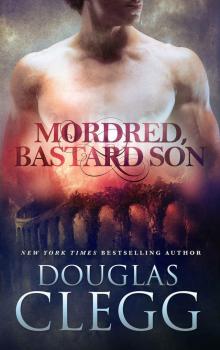 Mordred, Bastard Son
Mordred, Bastard Son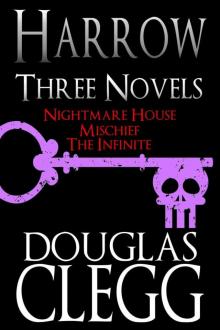 Harrow: Three Novels (Nightmare House, Mischief, The Infinite)
Harrow: Three Novels (Nightmare House, Mischief, The Infinite)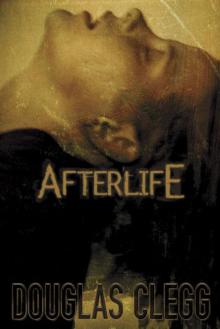 Afterlife
Afterlife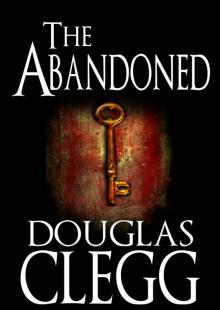 The Abandoned - A Horror Novel (Thriller, Supernatural), #4 of Harrow (The Harrow Haunting Series)
The Abandoned - A Horror Novel (Thriller, Supernatural), #4 of Harrow (The Harrow Haunting Series)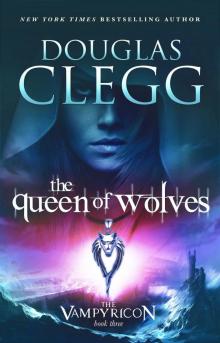 The Queen of Wolves
The Queen of Wolves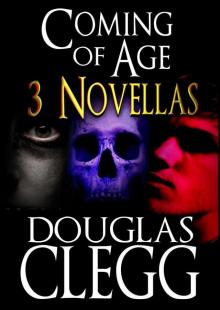 Coming of Age: Three Novellas (Dark Suspense, Gothic Thriller, Supernatural Horror)
Coming of Age: Three Novellas (Dark Suspense, Gothic Thriller, Supernatural Horror)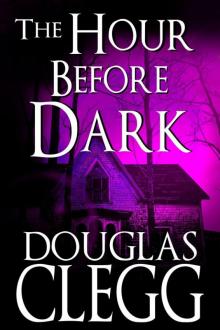 The Hour Before Dark
The Hour Before Dark Isis
Isis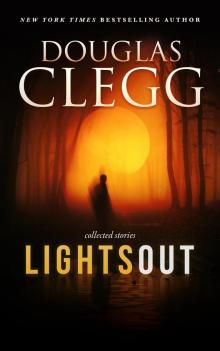 Lights Out
Lights Out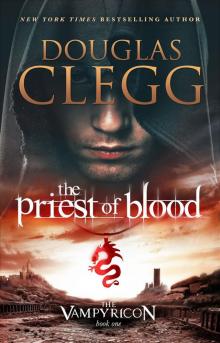 The Priest of Blood
The Priest of Blood Criminally Insane: The Series (Bad Karma, Red Angel, Night Cage Omnibus) (The Criminally Insane Series)
Criminally Insane: The Series (Bad Karma, Red Angel, Night Cage Omnibus) (The Criminally Insane Series)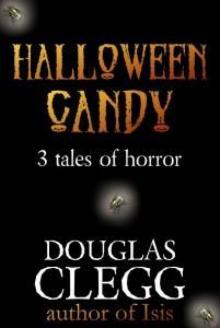 Halloween Candy
Halloween Candy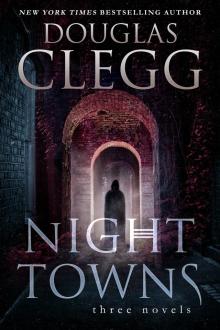 Nights Towns: Three Novels, a Box Set
Nights Towns: Three Novels, a Box Set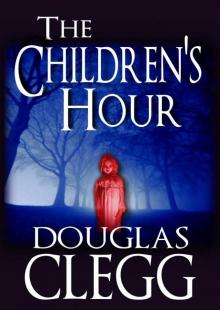 The Children's Hour - A Novel of Horror (Vampires, Supernatural Thriller)
The Children's Hour - A Novel of Horror (Vampires, Supernatural Thriller)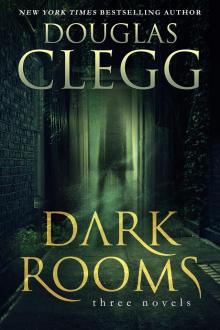 Dark Rooms: Three Novels
Dark Rooms: Three Novels![[Criminally Insane 01.0] Bad Karma Read online](http://i1.bookreadfree.com/i2/04/10/criminally_insane_01_0_bad_karma_preview.jpg) [Criminally Insane 01.0] Bad Karma
[Criminally Insane 01.0] Bad Karma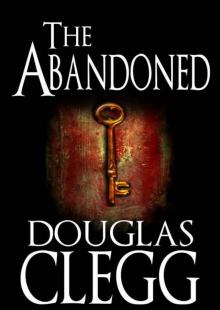 The Abandoned - A Horror Novel (Horror, Thriller, Supernatural) (The Harrow Haunting Series)
The Abandoned - A Horror Novel (Horror, Thriller, Supernatural) (The Harrow Haunting Series)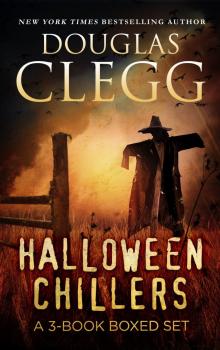 Halloween Chillers: A Box Set of Three Books of Horror & Suspense
Halloween Chillers: A Box Set of Three Books of Horror & Suspense